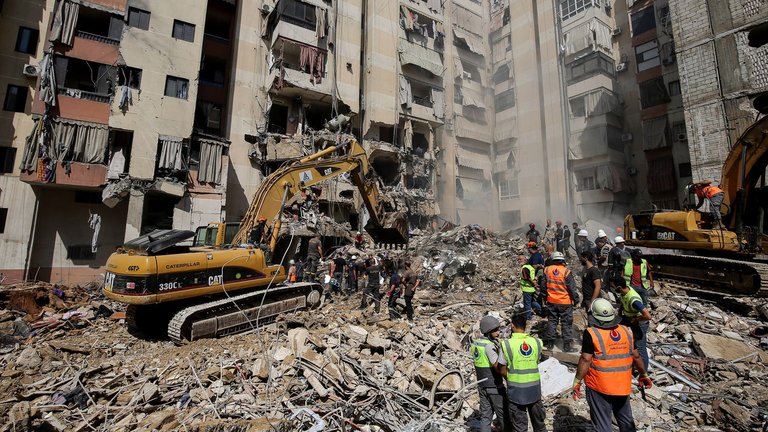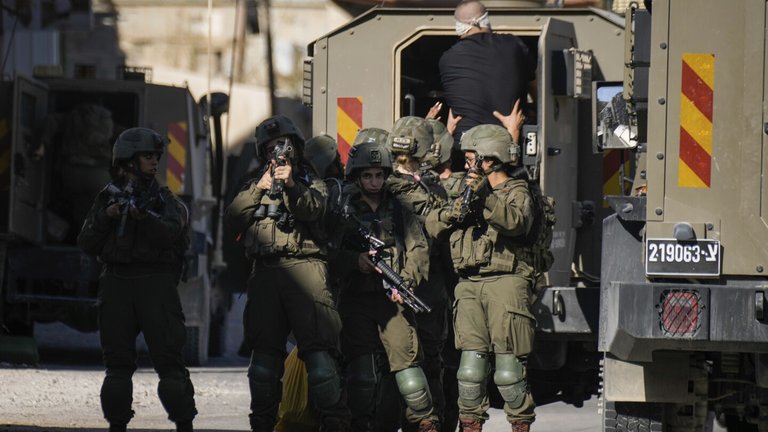The Latin American Report # 329: today global
 Source
SourceEarly Sunday, Hezbollah launched more than 100 rockets, about 150 according to some sources, into northern Israel, with some landing near Haifa. This in response to devastating and surgical strikes by Israeli forces in recent days, which have included such unorthodox methods as the remote detonation of walkie-talkies and pagers, relatively “archaic” communication devices. There are fears that the clashes will escalate into “an all-out war,” and, truth be told, it has been a long time since the Middle East has been this close to exploding. “We have entered a new phase,” Hezbollah's number two said today. “If Hezbollah has not understood the message, I promise you it will understand,” Netanyahu stated for his part, assuming responsibility for the attacks that already today killed three villagers in southern Lebanon, apparently two of them militants.
For its part, the Iraqi Islamic Resistance claimed responsibility for four missile and drone attacks against “Zionist military targets” in support of the Palestinian people. In Gaza, where the "original" conflict is raging, more than 41,400 people have already been killed in the multi-pronged Israeli attacks on the Hamas-administered enclave. It is estimated that more than 10,000 bodies are still buried under the rubble. Yesterday, 13 children were killed after Israeli artillery hit the school compound where they were sheltering. The Netanyahu government always claims that Hamas militants use schools and hospitals to conduct operations, and that it tries to reduce the number of civilian casualties, but the record contradicts this “commitment”.
 Source
SourceA troubled world
Russia shelled Ukraine's second largest city, Kharkiv, for the second time last night, injuring about 20 residents of high-rise apartment buildings there, including an eight-year-old girl. Some 10,000 people have fled neighboring Hlukhiv because of the intensified Russian aerial scourge, representing a third of its prewar residents.
“On the other side of the world”, four people were killed and nearly 20 wounded when gunmen got out of a car and opened fire in an outdoor area known for its nightlife in Birmingham, Alabama. According to initial reports, the target of the attack was one of the fatalities.
In Sudan, the population suffers the consequences of the internal conflict waged by paramilitaries and the army since April last year. “Most of our homes in the [city of El-Fasher] have been completely destroyed,” a local resident told AFP. Yesterday, Saturday, 14 civilians were confirmed dead, but a source assured that “that's nowhere near the real number of victims”. A balance of EFE puts the number of dead in the last hours at 21, including women and children.
Meanwhile, in the African Sahel, violent events by extremist groups continue to “bite” at the region's security, with the attack on the capital of Mali last week being the most recent example of this trend. Last August, some 100 villagers and soldiers were killed in the Barsalogho commune, central Burkina Faso, victims of an incursion by al-Qaida-linked jihadis. The Burkinabe civilians, by the way, were being forced to dig trenches when the attack—“one of the deadliest this year” there—, occurred.
The police authority in Papua New Guinea declared a state of emergency because of bloody clashes between clans fighting over, among others, the strategic land in the town of Porgera, Enga province, where one of the world's largest gold mines is located. Hundreds of people have been displaced by the violence, which in the last few days has claimed the lives of between thirty and fifty individuals.
At the same time, nature also plays bad causing painful droughts, fires, landslides, floods and earthquakes. This Sunday, in Noto, Japan, rescuers searched for six people missing after heavy rain triggered landslides and floods, causing the death of at least one person. In the last 60 days, 503 people have died in Chad as result of catastrophic floods. Hundreds of thousands of people have been affected, adding to the loss of nearly 70,000 head of livestock and some 358,000 hectares of crops destroyed. Other African nations are facing a similar picture.
And this is all for our report today. I have referenced the sources dynamically in the text, and remember you can learn how and where to follow the LATAM trail news by reading my work here. Have a nice day.

